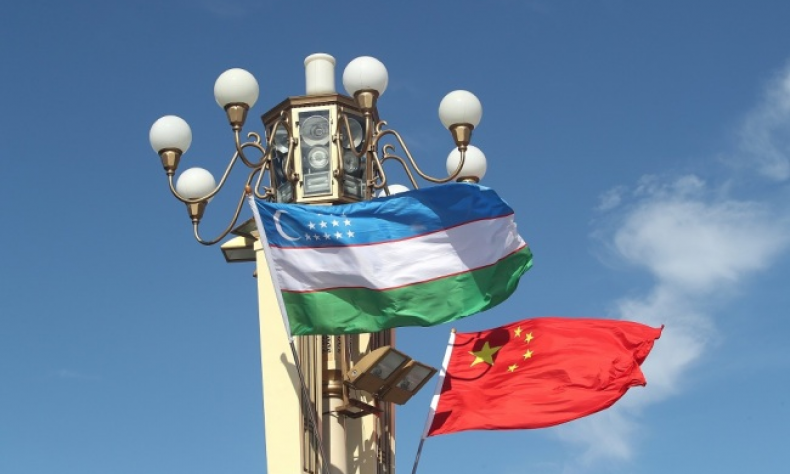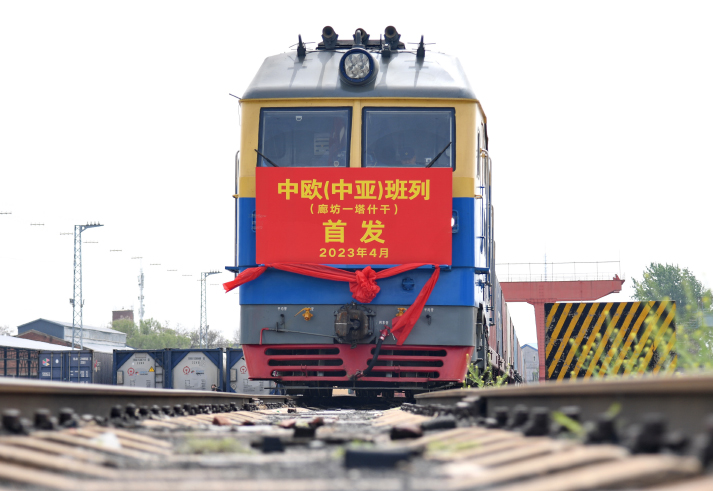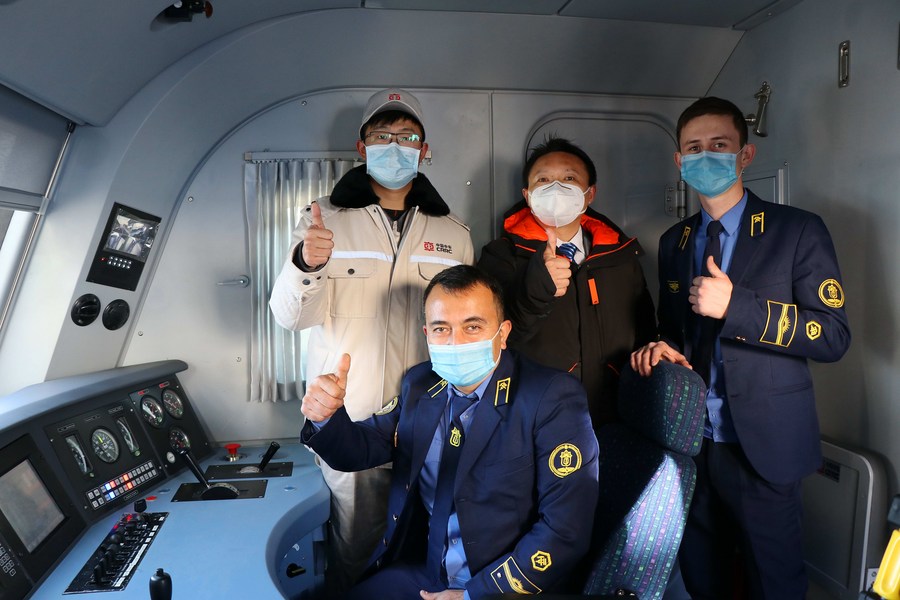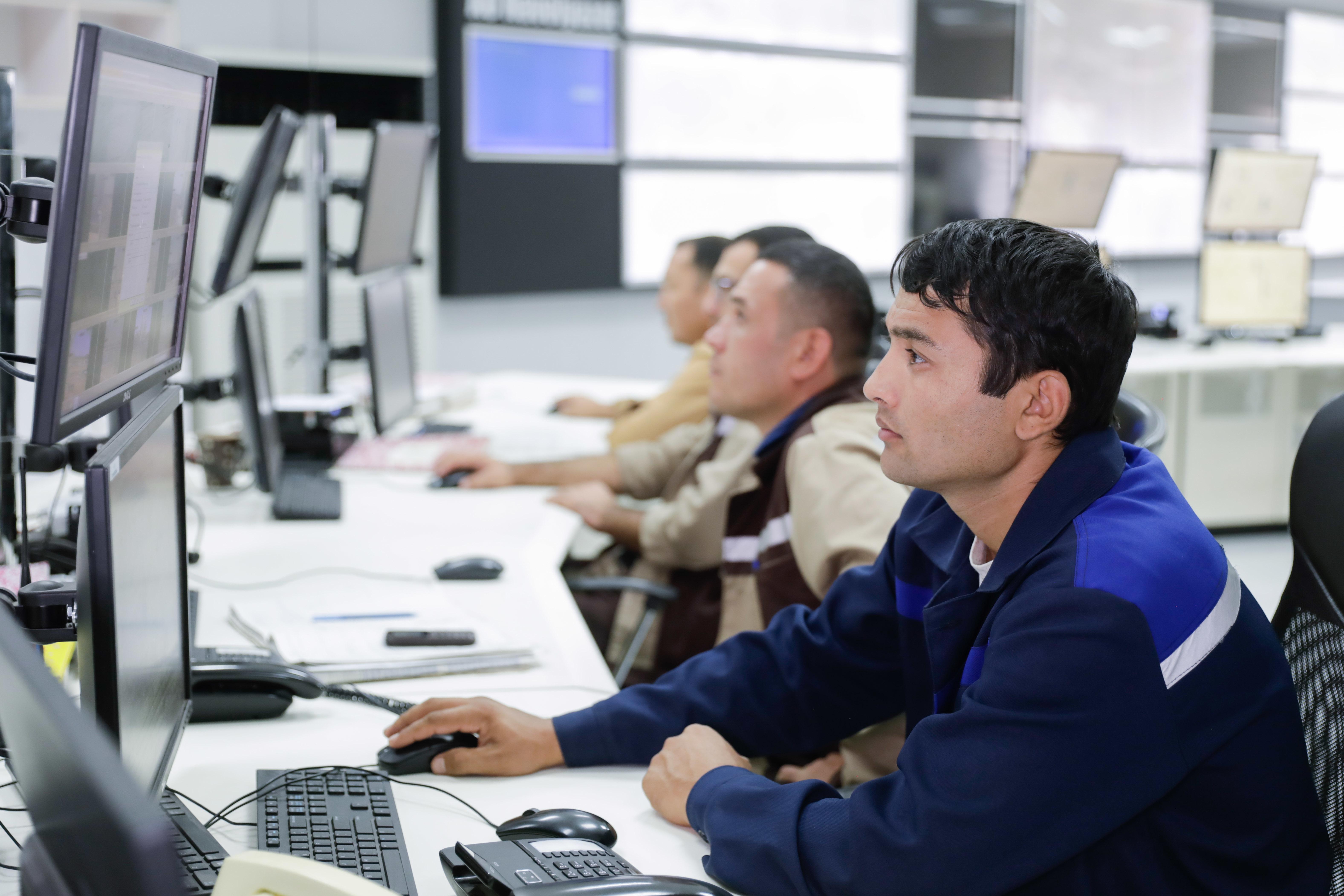Stronger Links with Central Asia

Today, thanks to joint efforts, bilateral relations between Uzbekistan and China are of a particularly close nature. Practical cooperation between the two countries is deepening in virtually all spheres and areas.
From the planned China-Kyrgyzstan-Uzbekistan Railway to ongoing cultural exchanges, Central Asian countries are engaging in closer cooperation with China. In an interview with Beijing Review ahead of the China-Central Asia Summit taking place in the northwestern Chinese city of Xi’an on May 18-19, Farhod Arziev, Ambassador of Uzbekistan to China, shed light on how these countries can work together to make the most of the region’s potential. Edited excerpts of the interview follow:
Beijing Review: How would you assess the importance of the China-Central Asia Summit?
Farhod Arziev: It is deeply symbolic that the First China-Central Asia Summit will be hosted in the historical and ancient city of Xi’an, Shaanxi Province. It was from there the Great Silk Road, which is a vivid embodiment of the centuries-old ties between Uzbekistan and China, started.
Undoubtedly, the summit will bring new opportunities for all our countries. The important agreements to be adopted within its framework will serve to strengthen friendship and expand all-round cooperation.
The parties will start developing a strategy for a new China-Central Asia economic dialogue. The initiative to develop this strategy was proposed by President of Uzbekistan Shavkat Mirziyoyev during the virtual summit to commemorate the 30th anniversary of diplomatic relations between Central Asian countries and China in January 2022.
This strategy provides for the adoption of targeted measures to ensure unhindered trade and increase the volume of supplies of finished products from Central Asian countries to China.
Another important event within the framework of the summit will be the launch of a year of culture and art of the peoples of Central Asia and China, which was also proposed by the president of Uzbekistan in order to further expand and strengthen cultural ties between our countries.
How will the Belt and Road Initiative (BRI) help advance cooperation in the region?
I would like to note that the BRI proposed by Chinese President Xi Jinping [in 2013] is of global importance. In a historically short period, the initiative has demonstrated its viability, and plays an important role in promoting regional and international cooperation. Today, the role of the initiative in boosting regional and international economic growth is becoming even more important for the recovery of the global economy.

The BRI has achieved great success, and there are many examples worthy of note. Starting with initial large projects such as road and infrastructure construction, it has quickly spread to various social and public areas, and programs such as the Green Silk Road, Digital Silk Road and others are being implemented.
Uzbekistan supports and takes an active part in the implementation of the initiative. The implementation of projects within the framework of the BRI will allow the participating countries to increase the volume of trade, build new production and supply chains, and diversify cargo transportation routes.
One of the priority areas for Uzbekistan to cooperate with China within the framework of the BRI is the implementation of transport and communication projects. The formation of transport corridors is a priority for interconnectedness of our countries.
One of the strategically important projects is the construction of the China-Kyrgyzstan-Uzbekistan Railway, trilateral agreements on which were reached during the Shanghai Cooperation Organization summit in Samarkand, Uzbekistan, in September 2022. The implementation of this project will considerably shorten the delivery time of goods between the countries of Central Asia and China and reduce the pressure on the existing routes.
The China-Kyrgyzstan-Uzbekistan Railway will not only benefit the three countries, but will also be of great importance in connecting Eurasia and ensuring a safe and seamless supply chain.
Undoubtedly, other important areas of Uzbekistan’s participation in the BRI affect issues of trade and investment cooperation, as well as interaction in the fields of tourism, healthcare and cultural exchanges.
The investment projects that we are implementing with the participation of Chinese investors contribute to the innovative development of the national economy, the technological modernization of production facilities, the introduction of digital technologies and the promotion of the green agenda.
We see great prospects in using the huge potential of China, as one of the world leaders, in the digitalization of the economies of Central Asia, including within the framework of the Digital Silk Road program.

How would you comment on current China-Uzbekistan relations?
The current level of interstate relations between Uzbekistan and China is very high and dynamic. Our relations are built on the principles of friendship, mutual respect, good neighborliness, mutual consideration of interests, respect for national sovereignty and territorial integrity, and non-interference in each other’s internal affairs.
Uzbekistan and China have common and similar interests in many regional and international issues, we have deep historical and cultural ties, and there are a lot of similarities in our traditions and values. At least, our contacts have a history of more than 2,000 years. We look with firm confidence to the future of the Uzbek-Chinese comprehensive strategic partnership.
With the participation of leading Chinese companies and banks, hi-tech projects are being implemented in Uzbekistan in industry, information and communication technologies and other priority areas. Particular attention is paid to unlocking the potential of cooperation in the fields of energy, green economy, artificial intelligence, digitalization and e-commerce.
A five-year program of trade, economic and investment cooperation is being implemented. It is opening new opportunities for our trade and economic circles. Cooperation between the regions of Uzbekistan and China is developing actively. We see great potential in this direction and intend to hold a Uzbek-Chinese interregional forum this year.
Over the past years, we have been actively participating in the BRI. China maintains its position as the first trading partner of Uzbekistan. China also remains the largest export market for Uzbekistan. At the end of 2022, mutual trade between Uzbekistan and China amounted to about $9 billion.
China is not only a global factory, but also a global market. Therefore, Uzbekistan is interested in maximizing the use of these opportunities, taking into account the complementary advantages of our economies.
I would like to outline great prospects for cooperation between business entities of Uzbekistan and China in electronic and electrical, textile, information technology, green economy, automobile, chemical, petrochemical and a number of other innovative industries.
Cooperation between Uzbekistan and China in the fields of investment and modern technologies is becoming more and more intense. With the participation of Chinese companies and financial institution, a number of large investment projects of industrial cooperation and infrastructure modernization are being implemented.

The volume of investments in the economy of Uzbekistan in recent years has exceeded $10 billion. Today, Chinese direct investment is actively present in energy, chemical, pharmaceuticals, agricultural, light industry and other sectors. As a result of mutual efforts, agreements were reached on the implementation of over 150 new joint investment projects.
Interaction in matters of poverty reduction has also become an important area of practical cooperation. China’s successful experience creates good opportunities for exchange and cooperation in the development of rural industries, the modernization of the agricultural sector, and the strengthening of rural infrastructure. A subcommittee on poverty reduction is being created within the framework of the Uzbek-Chinese Intergovernmental Cooperation Committee.
How will President Mirziyoyev’s upcoming visit to China upgrade bilateral relations?
The state visit of President Mirziyoyev will give new impetus to further strengthen the comprehensive strategic partnership between Uzbekistan and China. Today, thanks to joint efforts, bilateral relations between Uzbekistan and China are of a particularly close nature. Practical cooperation between the two countries is deepening in virtually all spheres and areas.
Our countries are mutually interested in further expanding and deepening cooperation in the trade, economic, investment and innovation fields. Concrete practical measures are being taken for industrial cooperation.
China’s experience in sustainable development is very attractive to us. We actively adopt from the advanced Chinese experience. Here I want to give one example. At the initiative of President Mirziyoyev, Syrdarya region in Uzbekistan is becoming an innovation hub based on using experience, investments and technologies from China.
We also have good experience of cooperation in the field of vaccines. Currently, efforts are being made to create an Uzbek-Chinese biotechnology cluster.
Cooperation in education, science, professional training and tourism is also expanding. We are working to increase the number of Chinese tourists to Uzbekistan. The number of flights between the two countries has doubled. At the moment, there are 12 flights a week from Beijing and other cities in China to Uzbekistan.
 Facebook
Facebook
 Twitter
Twitter
 Linkedin
Linkedin
 Google +
Google +










